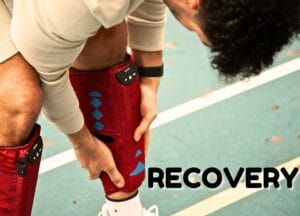How to Prevent and Recover from Common Fitness Injuries

Injury is like a biggest nightmare for everyone who performs athletic activities, fitness activities, going to gym or doing any other physical activities. So today let’s see how we can prevent the common fitness injuries and also will be giving recovery tips which will help you to recover from your fitness injuries. Here are some of the important key points which are mandatory to follow to avoid the common fitness injuries, while to talk injuries they are part of our physical activities which ever we are performing. These key points will help you to prevent the major common fitness injuries:
1) Warm up properly
The first point is while performing any fitness activities it is must to do a proper warm up, because warm up prepares our muscle joints and cardiovascular systems.
Here are example for warming up body you can do a 5-10 minutes of light cardio which include walking, jumping jacks, jogging, also dynamic stretches, legs, Wings arm circles etc.
2) Use proper form
The second and most important point is to use proper forms one must learn the correct technique, for each and every exercises especially with the weights for beginners start with your body weight or light resistance until your form is consistent. Do not hesitate to ask your coach/Trainer for feedback if you are unsure.
3) Progress gradually
The third point is to avoid over training or jumping into a high intensity workouts to quickly always keep in mind that progressing consistently and gradually will help you to reach your goal.
4) Rest and recovery
The four point is rest and recovery taking rest is an important factor which helps you to recover from your injuries. It is must to take at least 7 to 9 hours of night sleep to support your muscle repair, including rest days will help you to avoid chronic over use injuries, you can cross train to vary stress on different muscle groups.
5) Stay Hydrated and Nourished
The fifth point is to stay hydrated and the nourished because dehydration can lead you to cramping and muscle fatigue. Staying hydrated and nourished will help you to avoid the cramps in your muscles and not only that hydration and nourishment helps fluids to flow properly in your body.
Now let’s see some of the most common fitness injuries and their recovery tips
1. Muscle Strains (Pulled Muscles)
Muscle strain is caused due to over stretching or sudden overload on your muscles prevent muscle. To strain one must warm up properly and not to try lifting heavy too fast.
- Recovery:
- Rest the muscle (48–72 hours).
- Ice and elevate to reduce swelling.
- Gentle stretching and mobility after 2–3 days.
- Gradual return to activity.
2. Tendonitis (e.g., Elbow, Knee, Achilles)
Tendonitis is caused due to repetitive motion or overload. To prevent this you can vary your workouts, have proper rest, strengthen supporting muscles.
- Recovery:
- Rest and reduce aggravating activity.
- Ice and anti-inflammatory treatments.
- Use eccentric strength exercises (slow-lowering).
- Physical therapy if persistent.
3. Runner’s Knee (Patellofemoral Pain Syndrome)
Runner’s knee or patellofemoral pain syndrome is caused due to poor tracking of the kneecap and overuse. To prevent these strengthen glutes, quads and the hamstrings.
- Recovery:
- Reduce running and squatting volume.
- Foam roll IT band and quads.
- Strengthen hips and core.
4. Shin Splints
It is caused due to overuse of poor running mechanics. To prevent this you must gradually make progress in volume with proper footwear.
- Recovery:
- Ice and reduce impact activity.
- Stretch calves and strengthen anterior tibialis.
- Avoid running on hard surfaces temporarily.
5. Low Back Pain
Usually it is caused due to poor form especially in (squats/deadlifts), weak core. To prevent you must learn proper lifting mechanics, strengthen core/stabilizers.
- Recovery:
- Rest from heavy lifting.
- Use gentle movements (bird-dogs, planks).
- Heat therapy and mobility work.
- Seek medical evaluation if pain persists.
6. Rotator Cuff Injuries (Shoulder Pain)
Rotator cuff injuries are one of the most common injuries which is caused due to poor overhead form or repetitive strain. To prevent this strengthen your rotator cuff muscles, improve shoulder mobility.
- Recovery:
- Avoid overhead pressing temporarily.
- Perform banded shoulder rehab (external rotation, face pulls).
- Ice and anti-inflammatory care as needed.
Smart Recovery Protocol (R.I.C.E.)
Rest
Ice (20 minutes every few hours)
Compression (wrap or brace if needed)
Elevation (especially for sprains or swelling)
It is important to know when to seek the professional help
- If your Pain that lasts longer than 7 days.
- Swelling or bruising that worsens you.
- Sharp or stabbing pain during performing activity.
- Limited range of motion or instability due to injury.